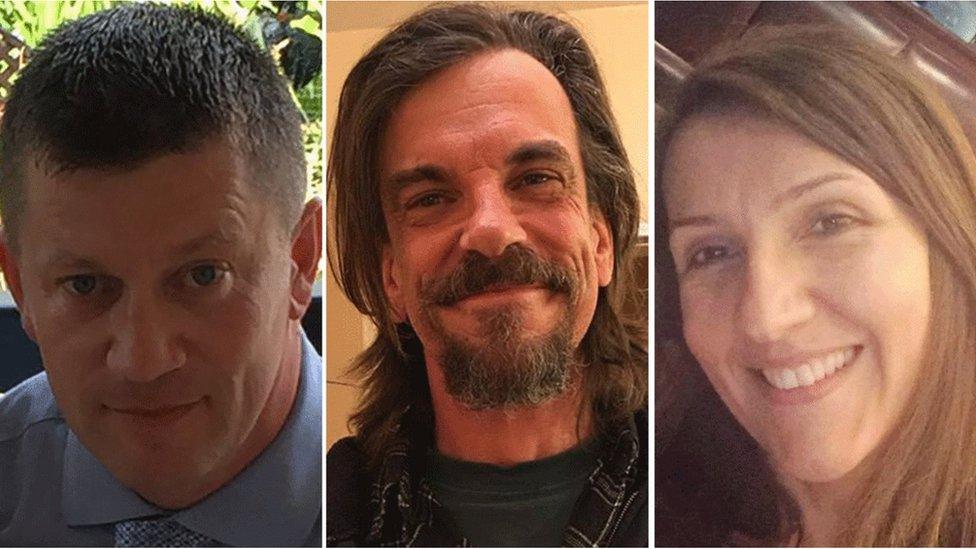London attack: US victim's family say he focused on positives in life
- Published
Kurt Cochran's brother-in-law, Clint Payne, read a statement for the family
The family of the US tourist killed in the Westminster terror attack have said he bore no "ill will" to anyone and spent life focusing on "the positive".
Kurt Cochran, 54, from Utah, was one of three pedestrians who died after being hit by a car driven by Khalid Masood on Westminster Bridge last Wednesday.
His family said since then they have "felt the love of so many people".
Masood, who also fatally stabbed PC Keith Palmer outside Parliament, was shot dead by police.
The others who died were Aysha Frade, who worked at a college near Westminster Bridge and 75-year-old retired window cleaner Leslie Rhodes. Fifty people were injured.
Mr Cochran had been with his wife, Melissa, on the final day of a holiday in Europe to celebrate their 25th wedding anniversary - their first trip abroad. She suffered a broken leg and rib and a cut head.
They had also been visiting Melissa's parents, who work on a Church of Jesus Christ of Latter-day Saints mission.
Thirteen members of Mr Cochran's family attended a press conference at Scotland Yard to speak in public for the first time about the attack.
Mrs Cochran's sister, Shantell Payne, said: "We haven't really talked about what happened with her. We're trying to focus on giving her healing energy. We're trying to focus on positive things."
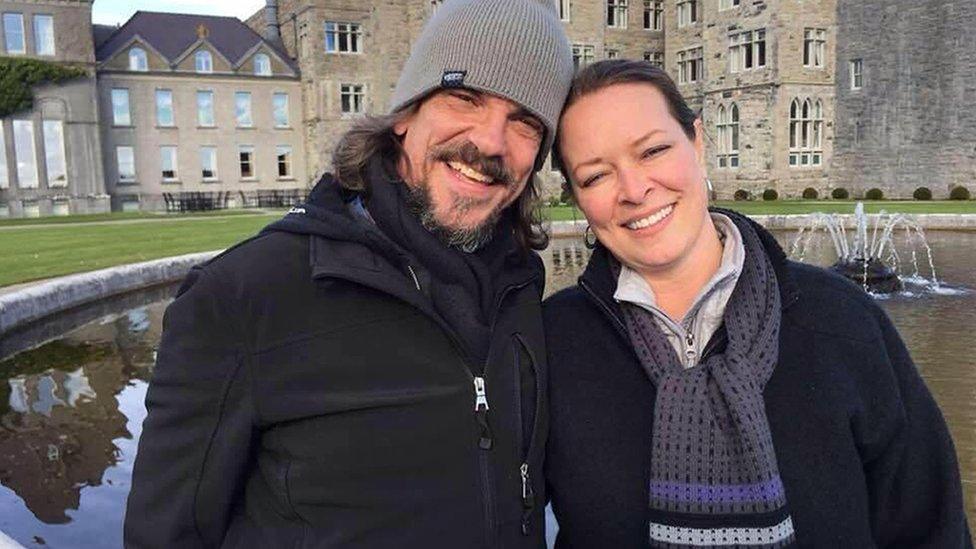
Mrs Cochran (pictured with her husband) has a broken leg, a broken rib and a cut on her head
Mrs Cochran's brother, Clint Payne, said she was slowly recovering.
"It's been a tender experience for our family to be together with Melissa here," he said. "Her health is steadily improving and she has been strengthened by the presence of her family. She is so grateful for the outpouring of love and generosity."
Mr Payne added that Mr Cochran, who owned a sound recording studio, "wouldn't bear ill feelings towards anyone and we can draw strength as a family from that".
He said: "His whole life was an example of focusing on the positive. Not pretending that negative things don't exist but not living our life in the negative - that's what we choose to do."
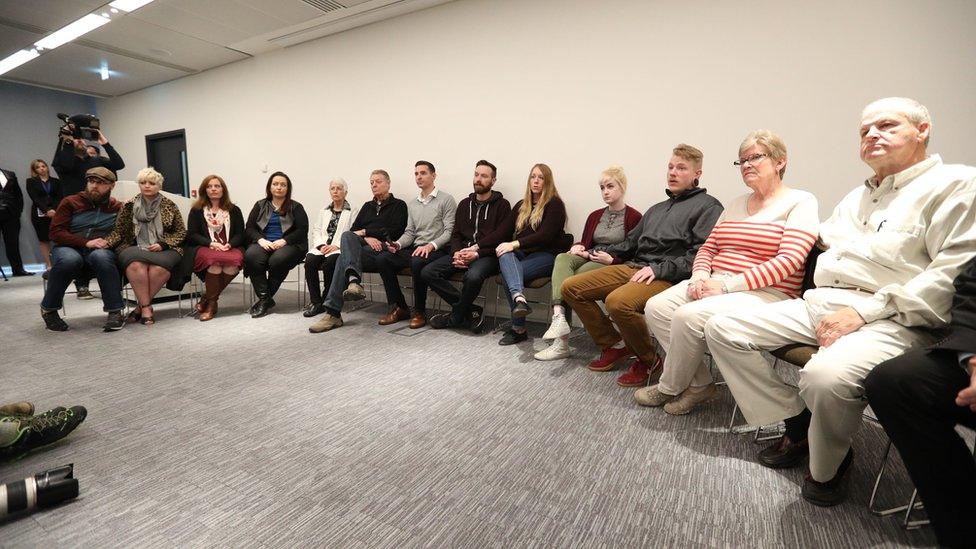
Thirteen members of Mr Cochran's family were at the press conference
Wembley tribute
On Saturday, the Metropolitan Police said they believed Masood acted alone but they were also "determined" to find out whether he had been inspired by terrorist propaganda.
However, Scotland Yard said it was possible they would "never understand why he did this".
It is understood Masood's phone connected with messaging app WhatsApp minutes before the attack, which police say started at 14:40 GMT and lasted just 82 seconds.
An image of Masood's Whatsapp status shows that he was "last seen" on the messaging service at 14:37.
The revelations have prompted a debate about the responsibilities of messaging services.
Home Secretary Amber Rudd said encrypted messages must be accessible to intelligence services fighting terror, stressing there must be "no place for terrorists to hide".
She is holding talks with other EU ministers in Brussels to discuss ways of preventing further attacks and will later this week meet technology firms.
A WhatsApp spokeswoman said the company was "horrified at the attack" and was co-operating with the investigation.
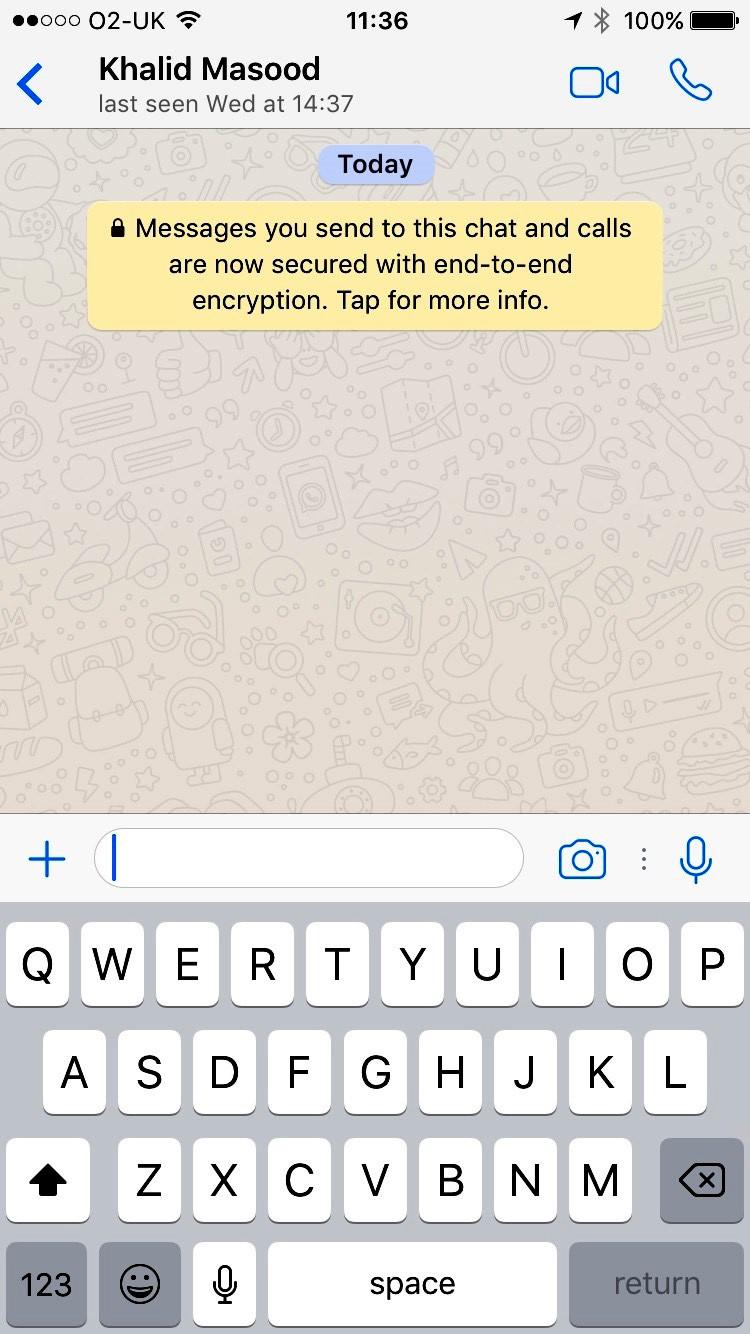
An image of Khalid Masood's Whatsapp status shows he was "last seen" at 14:37 on Wednesday 22 March
Officers investigating the attacks are holding two people from Birmingham on suspicion of preparing terrorist acts. Nine people have so far been released without charge, while a 32-year-old woman arrested in Manchester remains on police bail until late March.
A tribute to the victims of the attacks was made at Wembley Stadium on Sunday evening when fans and players at England's World Cup qualifier against Lithuania observed a minute's silence before kick-off.
Four wreaths were laid on the pitch by Metropolitan Police Acting Commissioner Craig Mackey, London Mayor Sadiq Khan, FA chairman Greg Clarke and Culture Secretary Karen Bradley.
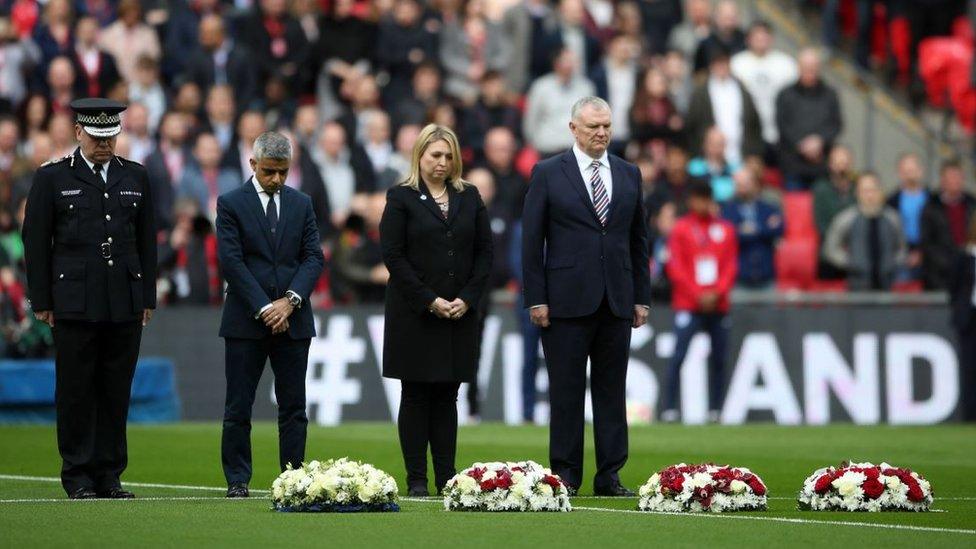
Wreaths for the victims of the Westminster attack were laid in the centre of Wembley's pitch


- Published23 March 2017
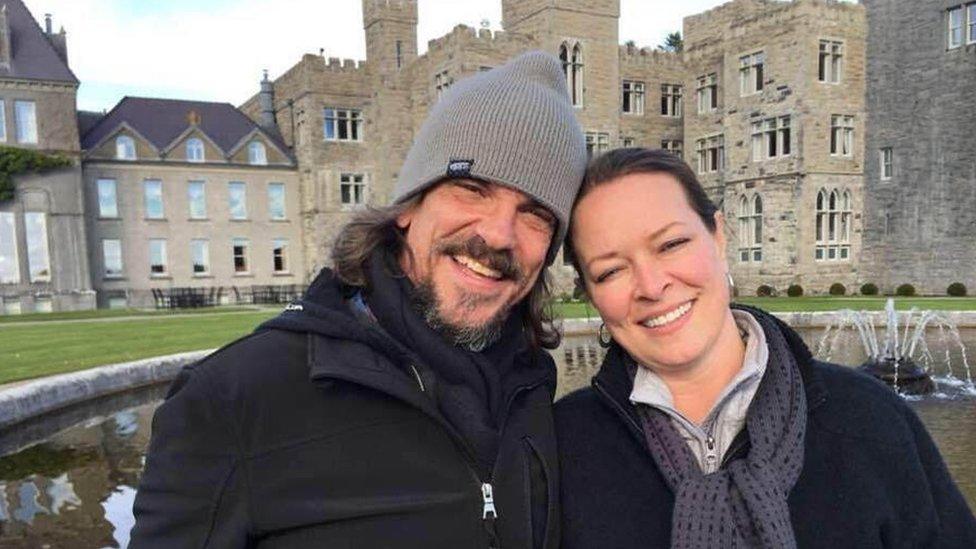
- Published7 April 2017
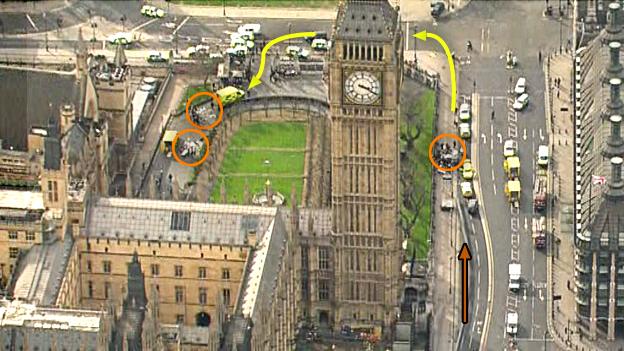
- Published3 October 2018
